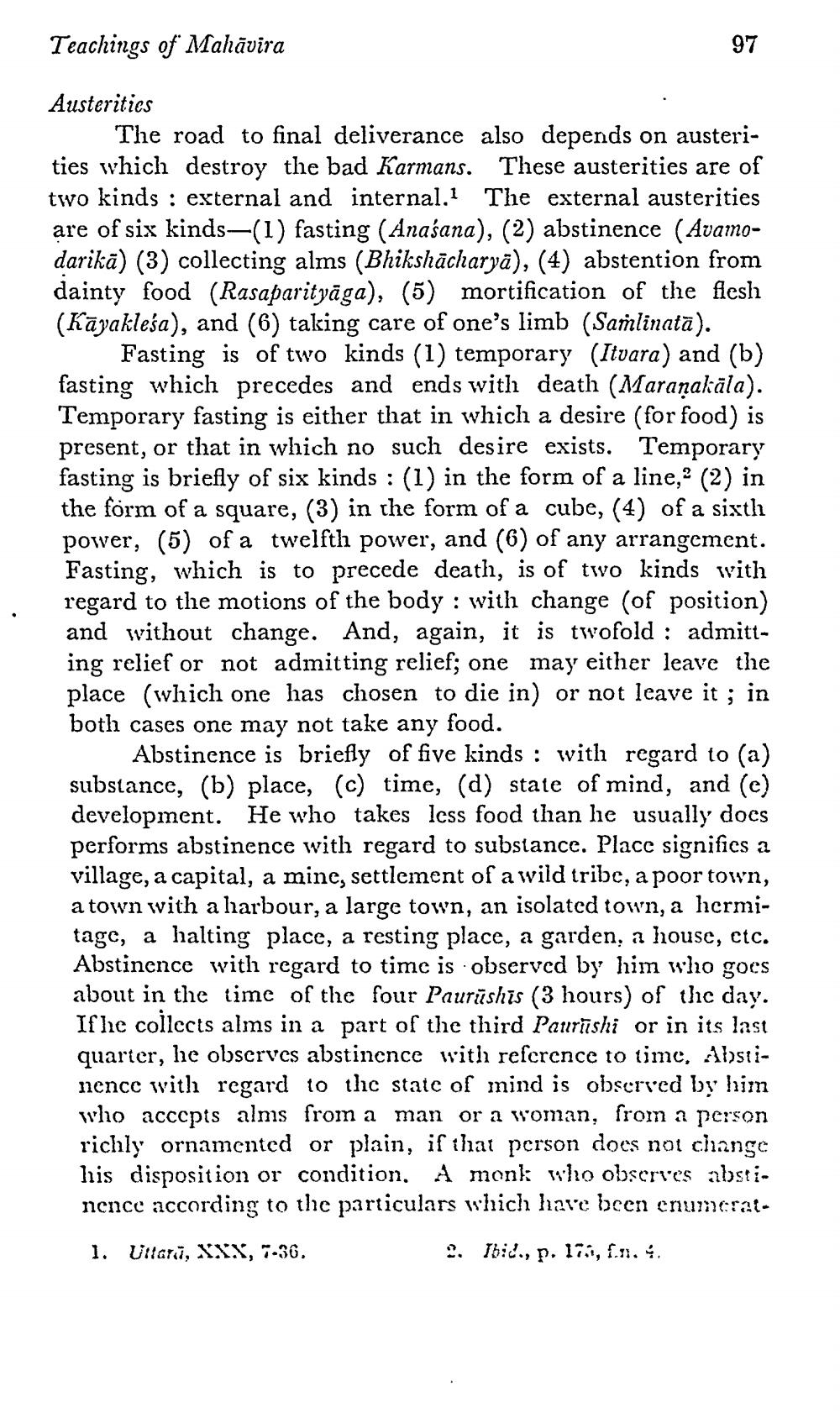________________
Teachings of Mahāvira
Austerities
The road to final deliverance also depends on austerities which destroy the bad Karmans. These austerities are of two kinds : external and internal. The external austerities are of six kinds—(1) fasting ( Anaśana), (2) abstinence (Avamodarikā) (3) collecting alms (Bhikshācharyā), (4) abstention from dainty food (Rasaparityāga), (5) mortification of the flesh (Kāyakleša), and (6) taking care of one's limb (Saṁlinatā).
Fasting is of two kinds (1) temporary (Itvara) and (b) fasting which precedes and ends with death (Maranakāla). Temporary fasting is either that in which a desire (for food) is present, or that in which no such desire exists. Temporary fasting is briefly of six kinds : (1) in the form of a line,2 (2) in the form of a square, (3) in the form of a cube, (4) of a sixth power, (5) of a twelfth power, and (6) of any arrangement. Fasting, which is to precede death, is of two kinds with regard to the motions of the body : with change (of position) and without change. And, again, it is twofold : admitting relief or not admitting relief; one may either leave the place (which one has chosen to die in) or not leave it ; in both cases one may not take any food.
Abstinence is briefly of five kinds : with regard to (a) substance, (b) place, (c) time, (d) state of mind, and (e) development. He who takes less food than he usually does performs abstinence with regard to substance. Place significs a village, a capital, a mine, settlement of a wild tribe, a poor town, a town with a liarbour, a large town, an isolated town, a hcrmitage, a halting place, a resting place, a garden, a house, ctc. Abstinence with regard to time is observed by him who goes about in the time of the four Paurashis (3 hours) of the day. If he collects alms in a part of the third Paurishi or in its last quarter, he observes abstinence with reference to time, Abstinence with regard to the state of inind is observed by him who acccpts alms from a man or a woman, from a person richly ornamented or plain, if that person does not change his disposition or condition. A monk who observes abstinence according to the particulars which have been cnumerai. 1. Ullari, XXX, 7-30.
2. Ibid., p. 176, 1.si. 4.




